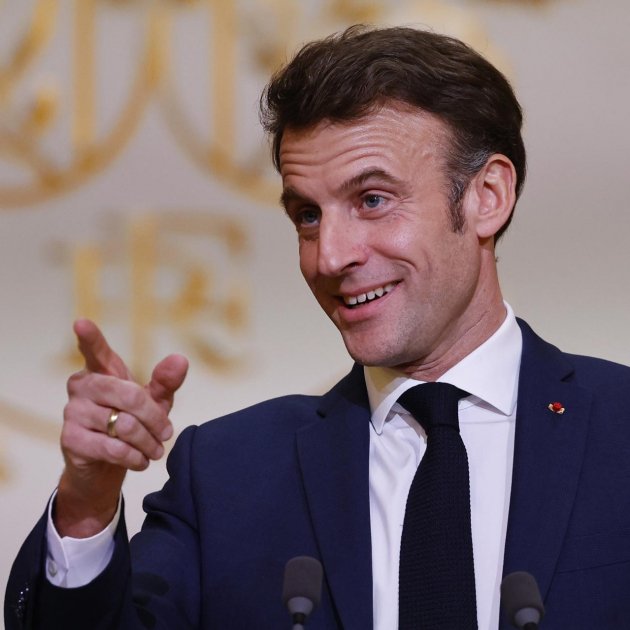Several French representatives have decided not to attend this Thursday's Franco-Spanish summit in Barcelona, due to the general strike that most unions have called against pension reform, in which protest incidents are not ruled out. The prime minister, Élisabeth Borne, may decline to attend the meeting with the Spanish government, a decision that the newspaper La Dépêche takes for granted as already taken, although it has no other confirmation for now. And in addition to her, it is already certain that the French labour minister, Olivier Dussopt, who is directly involved in the pensions issue, will not be travelling to Barcelona.
There is tension in Paris because president Emmanuel Macron will be in Barcelona in the midst of a general strike, which has been called "escapism" because there will be a difficult situation in the French republic on Thursday. The Élysée palace has tried to defuse the criticism, remarking that everything has been dictated to them by the Spanish government. "We did not choose either the day or the location of the summit," sources from the presidency indicated, according to France Info and La Dépêche. The interior minister, Gérald Darmanin, will also travel to the Catalan capital, despite the predictions of incidents during the general strike. An adviser to the French government justified the decision to the French broadcaster saying that the minister "is not the one who has to stop the black blocs", the English term used in France for black-clad protest brigades. Sources close to Macron also state that the meeting programme will be shortened if there are serious problems in France, and that the French delegation could return early. Calls for mobilization in Paris speak of "shaking the walls of the Elysée".
Communist Party national secretary Fabien Roussel warns that the French general strike against the pension reform will "rock" the Élysée palace .
Meanwhile, the Catalan independence movement are calling supporters for an early start - 9am - to protest a summit which members of the Spanish executive asserted would certify that the independence process is dead. In response, both to the protest and to the high security risks, the Mossos d'Esquadra have a policing plan ready for this Thursday that will be similar to that of the Euro-Mediterranean summit held in the capital of Catalonia in November 2005, when around 4,000 officers of the body were deployed. Along the lines of that plan, adapted to the current times and the new units that the Mossos have been incorporating in the interim years, this Thursday's police deployment in the city of Barcelona will involve up to twelve units of the force.
Beyond the regular Citizen Security service, public order services have also been strengthened, with the Mobile Brigade and ARRO riot squads, and they will be present, especially at the summit's ground zero: in the area close to the National Art Museum of Catalonia (MNAC) on Montjuïc mountain and also at the press centers and the locations of the two presidents and their teams. The canine unit and the underground unit will also take part. From the air, the Mossos will have live images from their drone unit and also from the police helicopter, which will follow the official entourages and security capsules of the two delegations from their arrival at Barcelona-El Prat airport. El Prat has also strengthened the airport security and traffic service, which is responsible for providing security to convoys of official vehicles, in a second sphere of proximity. The first security sphere is the responsibility of Sánchez's and Macron's own security teams, from the respective Spanish and French police forces. In addition, as is also usual when high-level political representatives visit Catalonia, teams from the Special Intervention Group (GEI) have been activated in critical areas, and readied as a reaction force. The presence in the city of plainclothes agents - the so-called Fura units - and also information specialists have also been reinforced.
Spanish government minimizes role of Aragonès
After the controversy of the Catalan government's decision to take part in the summit, the role that will finally be played by president Pere Aragonès at the bilateral meeting will be testimonial. The Spanish government has reduced the participation of the president of the Generalitat to a minimum. Specifically, the role of the head of the Catalan executive will be the same as that of any president of a Spanish autonomous community at other summits that have previously been held in different Spanish territories. It will not differ at all, to give an example, from the role that the mayor of Barcelona, Ada Colau, will have. Spanish government sources totally reject the possibility that there will be a meeting at any time between Aragonès and Sánchez, and they will only coincide briefly at the start of the event, around 10:30am.
